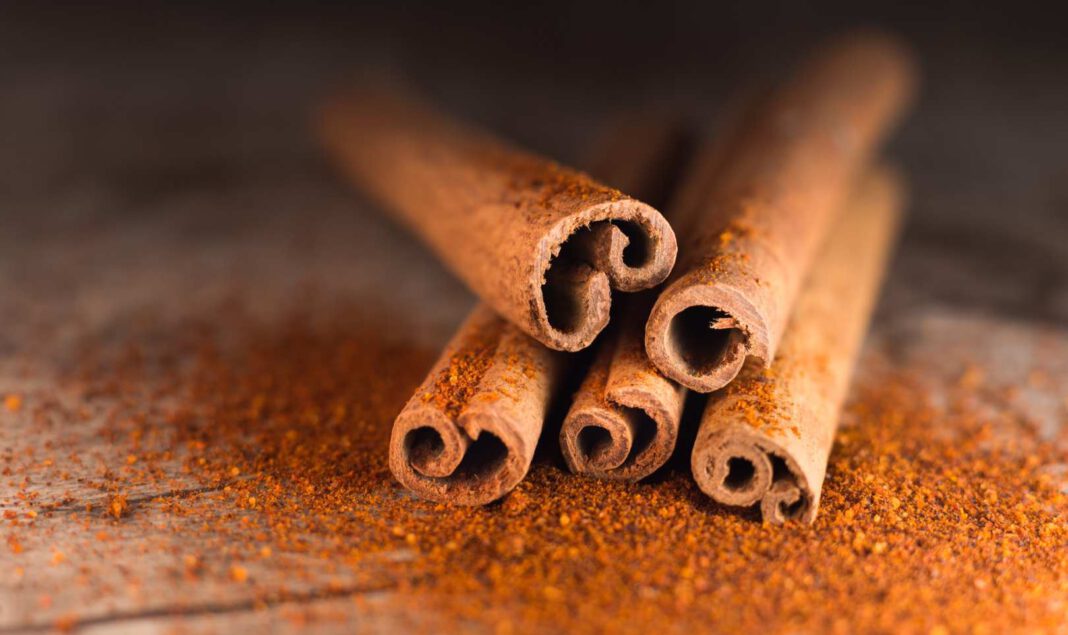The benefits of using cinnamon
Contents:
- Cinnamon – what exactly is it?
- Health benefits of cinnamon
- Are there any contraindications to using cinnamon?
The culinary thread surrounding cinnamon is a rather complicated, intricate story, hovering on the edge of truth and myth. The historical backdrop here is ancient China, ancient emperors, exotic islands, wars, and even Egypt under the rule of the pharaohs. This shouldn't surprise us, especially when we only remember the breathtaking, extremely aromatic smell of cinnamon. The aroma and culinary possibilities of this spice are one thing, but as it turns out, cinnamon is also distinguished by a number of health-promoting properties. The active compounds contained in cinnamon are responsible for the spice's positive effect on our body. What other properties does cinnamon have, and when is it worth using it? Let's take a look.
Cinnamon – what exactly is it?
Cinnamon is primarily associated with an extremely fragrant spice. Already known in ancient Rome, Greece, China, and Egypt, it continues to delight and tempt the palate today, for example, when preparing pastries in the kitchen.
Cinnamon, as a spice, is extracted from the bark of the cinnamon tree. There are approximately two hundred varieties of cinnamon trees! Ceylon cinnamon is considered the finest. Equally popular are varieties such as Chinese cinnamon (cassia) and camphor.
Health benefits of cinnamon
In cooking, only the bark of the cinnamon tree is used, although its health-promoting properties are expressed not only in the bark but also in the leaves of this plant. Both the bark and the leaves contain significant amounts of active ingredients that have a positive effect on our bodies. Consuming it will support us in situations where we are struggling with indigestion, loss of appetite, stomach cramps, diarrhea associated with flatulence, or heartburn. Cinnamon stimulates the secretion of digestive juices and bile, which improves the absorption of nutrients by our bodies.
Also worth mentioning is the oil extracted from cinnamon bark, which is very helpful in fighting colds, flu, and infections of the lower and upper respiratory tract. The oil is also considered an antiseptic, neutralizing various types of microorganisms. What other effects does cinnamon have?
- stimulates the production of estrogens,
- lowers blood pressure,
- supports the body in the fight against skin infections (e.g. acne or warts),
- strengthens and warms,
- in the form of oil it fights parasites of the skin (e.g. lice and scabies) and the gastrointestinal tract,
- anesthetic, analgesic or anti-inflammatory.
It's also undeniable that cinnamon has also found its way into cosmetics. This is primarily due to its flavoring properties. Cinnamon is used as an ingredient in perfumes and household chemicals. Interestingly, science is recognizing an even broader spectrum of cinnamon's beneficial properties. Its potential may be so great that in the future, it will even help us fight cardiovascular disease or Alzheimer's disease.
Cinnamon has also been found to have beneficial properties for people struggling with diabetes. Using cinnamon for diabetics normalizes blood sugar levels. Furthermore, the reduced level of glycated hemoglobin reduces the possibility of complications in type 2 diabetes. Research into cinnamon's potential to aid in diabetes management is ongoing, and there are many indications that its use will only continue to grow.
Are there any contraindications to using cinnamon?
Although cinnamon has many beneficial properties, it's not a product that everyone can use. First, cinnamon is not recommended for people suffering from kidney stones and gallbladder disease. Where does it come from? Cinnamon contains eugenol, an organic chemical that can negatively affect the properties of bile, which is responsible for fat digestion.
Cinnamon is also not recommended for people with food and contact allergies. This is because it can cause atopic changes in the hands, mouth, and gums.
THE PUBLISHER'S CHOICE
Dried plums 1 kg BIOGO
- £6.07
- £6.07
- Unit price
- / per
Dried White Mulberries 500 g ORGANIC
- £5.06
- £5.06
- Unit price
- / per
Almonds 1 kg BIOGO
- £10.12
- £10.12
- Unit price
- / per
Cranberries sweetened with apple juice organic 1 kg BIOGO
- £14.17
- £14.17
- Unit price
- / per
Dried dates 1 kg BIOGO
- £3.64
- £3.64
- Unit price
- / per
Unpeeled buckwheat groats 1 kg BIOGO
- £2.43
- £2.43
- Unit price
- / per
Walnuts 800 g BIOGO
- £7.49
- £7.49
- Unit price
- / per
Peeled sunflower seeds 1 kg BIOGO
- £2.63
- £2.63
- Unit price
- / per
PULLED ORGANIC SUNFLOWER SEEDS 1 KG BIOGO
- £3.84
- £3.84
- Unit price
- / per












































































































































